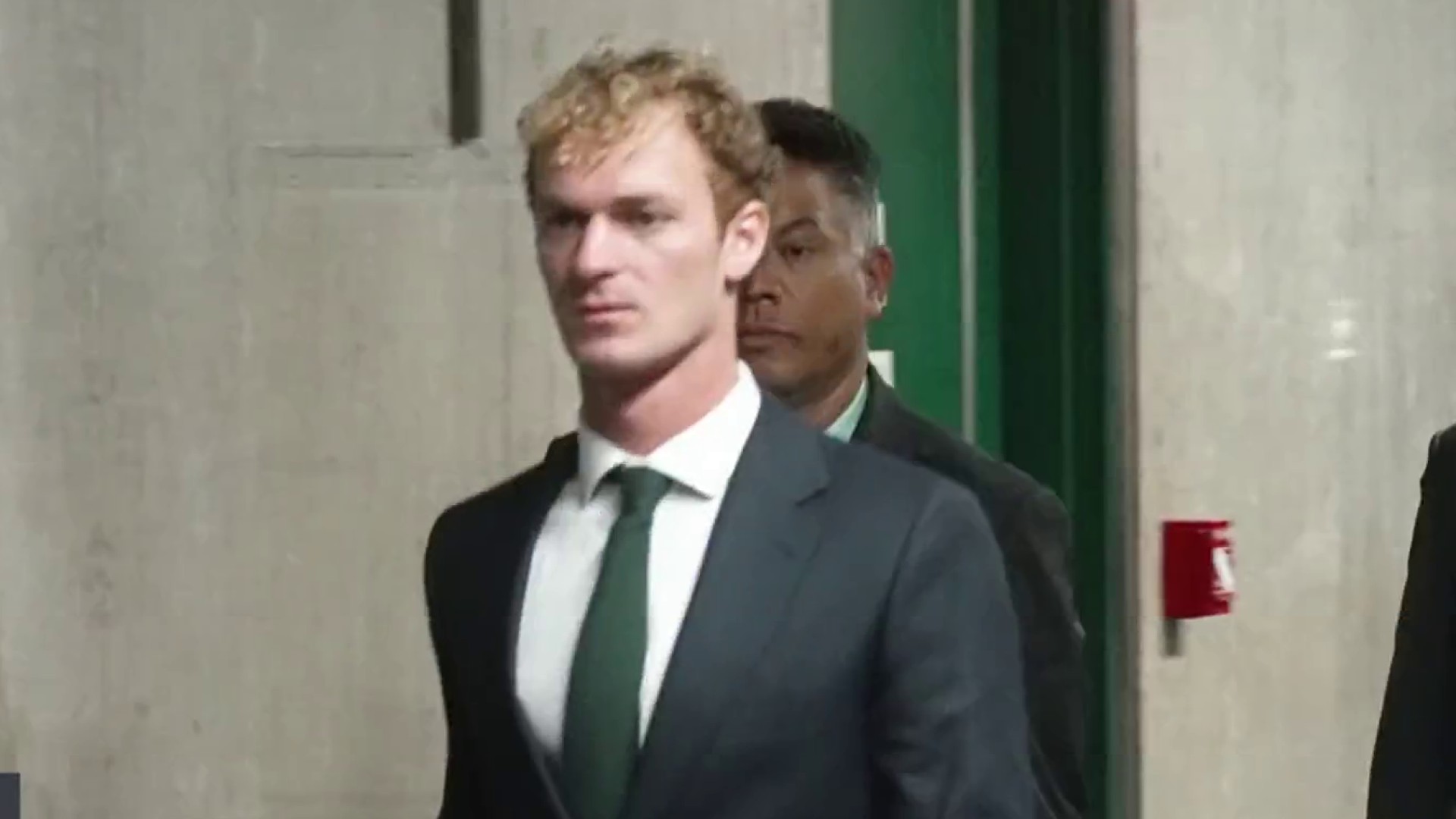Family members and friends of victims gathered at a vigil Wednesday night to commemorate the 25th anniversary of a social club fire that killed almost 90 people. At the time, it was the biggest mass murder in U.S. history.
On March 25, 1990, a Cuban refugee named Julio Gonzalez tried to win back the woman who had spurned him.
Gonzalez entered the Happy Land social club in the Bronx, which was humming with people — mostly immigrants — partying and dancing. His former live-in girlfriend, Lydia Feliciano, was checking coats, and they had a virulent argument. Gonzalez was thrown out.
In a rage, he returned just after 3 a.m., splashing gasoline on Happy Land's only guest exit and lighting two matches. Then he pulled down the metal front gate.
Within minutes, 87 people were dead.
On the day after the fire, as firefighters carried out the bodies, an icy drizzle descended on shocked relatives rushing to find out if their loved ones might be among the dead.
Get Tri-state area news delivered to your inbox. Sign up for NBC New York's News Headlines newsletter.
On Wednesday evening, again under a chilly drizzle, about 100 loved ones crowded around the granite memorial at the site of the club, their prayers in Spanish ringing into the night.
Local
They were joined by firefighters and police officers whose departments had responded to the blaze.
Earlier, during a Roman Catholic Mass at a nearby church, family members stood at the altar, each reading aloud the names of those who perished.
The fire was the worst in New York City since 146 workers died in a blaze at the Triangle Shirtwaist Company in what is today's Greenwich Village. They were killed exactly 79 years earlier on March 25, 1911.
That spring night in 1990, people were smothered by black smoke or fatally burned. It happened so quickly that some appeared like frozen figures from Pompeii.
A few still had drinks in their hands. Some had torn off their party clothes, engulfed by flames. Others died hugging or holding hands. Bodies were piled up on Happy Land's dance floor in the darkness, their faces covered with soot.
Jaffrey Gotay does not treasure memories of her father. She has none, because she was only 3 when he died, and her mother was pregnant with her sister.
"A lot of it is unknown, it's missing out, not really knowing what could have been," said Gotay, whose family buried her father, Denny Alvarez, in Trujillo, a town in Honduras where others killed in the fire also are buried.
"You don't really remember, and that sucks," she said, tears streaming down her face.
The sisters grew up writing letters to their absent dad each year on Father's Day, placing them near his picture.
Gotay brought along her 17-month-old daughter, whom she'll eventually tell how her grandfather died.
In 1990, Happy Land drew a noisy, happy crowd of mostly young people. The club had been ordered closed for fire hazards — no sprinklers or emergency exits — but continued to operate illegally.
About two-thirds of the victims were part of a Bronx community of so-called Garifunas — Hondurans descended from proud black natives of the Caribbean exiled by British colonizers more than two centuries ago. In recent years, many Garifunas have fled a repressive Honduran regime and settled in New York.
That fateful weekend, they were enjoying their go-to club, speaking their own language and dancing to their drum-driven Garifuna music.
Gonzalez, now 60, sits behind bars for life in an upstate New York prison. He was convicted of 174 counts of murder — two for each victim on charges of depraved indifference and felony murder.
A refugee from Fidel Castro's Cuba, he arrived in New York in the Mariel boatlift of 1980. A decade later, he was working in a warehouse but lost his job six weeks before the fire, police said.
Earlier this month, Gonzalez was denied parole.



